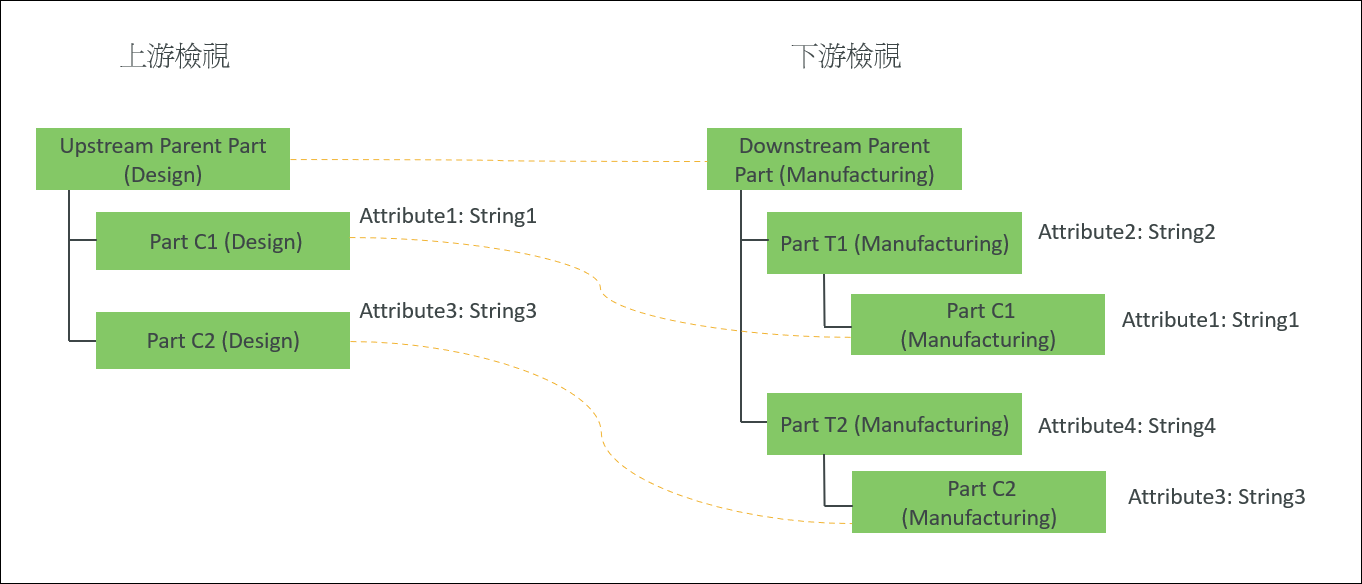使用案例 1:根據零件屬性產生下游結構
請考慮這樣一種情境:即 BOM 轉換器中存在以下結構:

• Upstream Parent Part (Design) 與 Downstream Parent Part (Manufacturing) 之間存在對等連結。
• 結構中所有零件的零件類型均為 wt.part.WTPart。
1. 存取位於 Windchill/codebase/com/ptc/core/foundation/associativity 中的 associativity.properties.xconf 檔案。
2. 將下列重新建構規則新增至 associativity.properties.xconf 檔案:
<AddToProperty name="com.ptc.windchill.associativity.reconciliation.addusage.wt.part.WTPart" value="transformoption=newPart"/>
<AddToProperty name="com.ptc.windchill.associativity.reconciliation.addusage.wt.part.WTPart" value="targetType=wt.part.WTPart"/>
<AddToProperty name="com.ptc.windchill.associativity.reconciliation.addusage.wt.part.WTPart" value="attributeMapping.rule1=Attribute1:String1:Attribute2:String2"/>
<AddToProperty name="com.ptc.windchill.associativity.reconciliation.addusage.wt.part.WTPart" value="attributeMapping.rule2=Attribute3:String3:Attribute4:String4"/>。
對於涉及對應的內容,為上游與下游指定的對應屬性必須不同。
針對上游中的所選零件啟動  動作後,Windchill 系統會遍歷所選零件下方的結構。此組態可確保: 動作後,Windchill 系統會遍歷所選零件下方的結構。此組態可確保:• 如果 Windchill 系統偵測到零件屬性 Attribute1 設定為 String1 的零件,則會將偵測到的零件作為新零件新增至下游,使其位於零件屬性 Attribute2 設定為 String2 且零件類型為 wt.part.WTPart 的零件下方。 • 如果 Windchill 系統偵測到零件屬性 Attribute3 設定為 String3 的零件,則會將偵測到的零件作為新零件新增至下游,使其位於零件屬性 Attribute4 設定為 String4 且零件類型為 wt.part.WTPart 的零件下方。 |
3. 選取 Upstream Parent Part (Design),然後按一下中間窗格工具列中的  。
。
 。
。4. 下列結構會顯示在 BOM 轉換器中:

根據在內容中指定的條件,Part C1 (Manufacturing) 和 Part C2 (Manufacturing) 分別新增為 Part T1 (Manufacturing) 和 Part T2 (Manufacturing) 下的新零件。 |